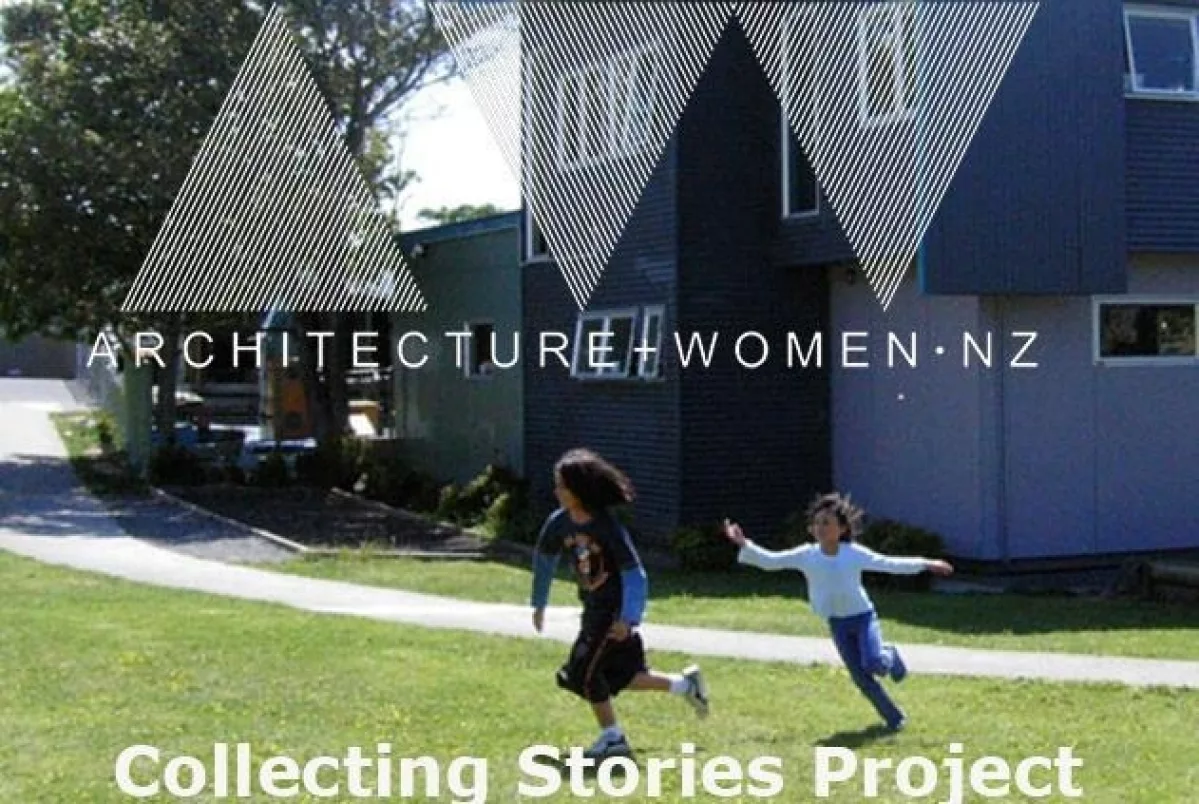A+W NZ 'Collecting Stories' Project
05 Nov 2019
A+W NZ Collecting Stories Project
Since 2011, A+W NZ have been 'collecting stories' from its members and colleagues as a way to continue conversations and ultimately help others navigate their way through career decisions. They are presented on this page as a series of anonymous quotes, and this first publication page focusses on issues affecting re-entry to the workplace after a career break. (The career-break reasons are dominated by family care, however breaks can be for other reasons such as travel, health and study.)
The quotes are arranged under the categories of Career Barriers, Reduced-Hour Working Weeks, Flexible Hours, Parental Leave and Voluntary Suspension.
The intention is to provide a range of opinions and experiences, to help others in similar stages of their architectural lives understand that experiences are wide and varied, and to know to ask for help when and where they need it.
As new stories are gathered, around new topics, we will add pages to the website, as well as add to this one.
The sources for these anonymous quotes are the A+W NZ Surveys, emails to [email protected], A+W NZ Mentoring Page, A+W NZ social media messaging, and personal interviews.
We thank everyone who has volunteered their comments, and hope this page can provoke discussion on these topics. Please contact us at [email protected] if you would like to add your story. (We can arrange for separate correspondence to maintain privacy of both individuals and workplaces.)
All care has been taken to remove identifying individual and practice information, however if you do not wish to have your quote included on this page, please email us to have it removed.
Career Barriers
'Since having a family I have not been given the standout projects in the office to lead as I was before having children. The work that I am asked to lead is smaller and of less value.'
'Being a working mum has increased my efficiency significantly... I don't believe many employers acknowledge or appreciate the benefits this brings to their business and in some cases the perceived lack of commitment usually comes with reduced remuneration. I myself went some time on a much lower salary in a misguided gratitude for flexible working hours.'
'I'd be keen to talk to someone that is working part time hours in a bigger firm, more so than someone working on their own, (or ideally someone who has done both)... The issue I've found is when I'm only able to work part time hours I've been pigeon holed into draughtsperson type roles, which is hard to expand my experience...I'm really interested in the management of projects and staff '
'I am a woman on Maternity Leave... and I am being made redundant along with another colleague who is also on Maternity Leave. I know this is wrong on so many levels and want to know ... where I can get legal advice, all other staff being retained have no children.'
'I graduated into a recession (1991). there was no option to work in conventional practice, so my career developed in other ways. I never decided to not practice, or not get registered, but it is the way things turned out.'
'Things I am wary of include a culture of working extended hours, even when supposedly on a 4 day week, and the difficulty this might pose people with families,'
'A friend in another related profession was recently promoted to a very senior position despite being 32 weeks pregnant. Her company wanted to ensure that she knew how valuable she was prior to taking one years leave (with 6 months of full pay). I do not believe that this would happen in architecture.'
'When I returned to work I wanted to be associated as a member of (our professional body) but found that none of the memberships categories were suited to my situation... They didn't know what to do and told me to wait till I got re-registered.. but this meant that I would have to pay non-membership fee to events within this period. I felt that this was unfair and after a bit more correspondence on this matter it was recommended for me to join (in the Retired category) '
'It took me 5 years to achieve registration. By this time I was 29. Many friends are starting families and my concern was that if I was in a similar position and had not registered, that I would find it increasingly difficult to achieve. Gaining registration has therefore been an important goal, and I am happy I achieved it.'
'I am a mother of three and gaining the experience required to obtain registration would require working in a large enough firm that would provide registration experience and support. The pathway to registration experience required would also require hours that are not compatible with raising a family.'
'In my case I sat my registration exam 16 weeks pregnant. I know that if I hadn't sat the exam when I did I would have no chance of finding the time to study over the next few years.'
'I'm now working as a specialist project manager, rather than as an architect, although I retain my registration. It's worth noting that if I'd encountered a more supportive, female friendly environment in the various practices I worked for in the first ten years following graduation, I might still be a practicing architect!'
'I feel daunted by the prospect of wanting to return to the industry with two children nearing school age, and juggling also being a mother/home maker. Offices I worked in before having children, expected staff to work until projects/ deadlines were met, meaning working to 2-3am, being in the office weekends, can't see how I can ever work those hours again.'
'Since having children I have experienced outright bias including being told I am of less value to the practice now that I have a family.'
'Most other newly registered architects (who are male) in the practice have been offered shares in the company.'
'I love the multi-disciplinary aspect of our office, always an expert to talk to about a difficult project to point you in the right direction or come up with an innovative solution.'
'While I acknowledge there is a gender disparity and I had seen it throughout my working life. It was minor compared to the massive disparity within the architecture industry towards working mothers and women in the 35-40 age group. I was not aware of this until I had a family and got older. I am not surprised that so many women leave the profession or go into sole practice at this time.'
Being a working mum has increased my efficiency significantly... I don't believe many employers acknowledge or appreciate the benefits this brings to their business and in some cases the perceived lack of commitment usually comes with reduced remuneration. I myself went some time on a much lower salary in a misguided gratitude for flexible working hours.
I feel daunted by the prospect of wanting to return to the industry with two children nearing school age, and juggling also being a mother/home maker. Offices I worked in before having children, expected staff to work until projects/ deadlines were met, meaning working to 2-3am, being in the office weekends, can't see how I can ever work those hours again.
Flexible Hours
'Flexible working hours improve retention.'
'I think it depends on the team you're in, but in our team it means that people who might not otherwise be able to work are able to, and they are amazing and it would be a real shame not to have them here.'
'I do not think (flexi-time) affects my projects as I always meet deadlines.'
'It is definitely harder to manage a group of people who are all on different time schedule'
'There is a perception from the a project principle that the flexible hours represent a problem that has to be negotiated in relation the project. I work 1 long week 1 short week and do 'normal' hours over the fortnight. I work as many 'additional' unpaid hours as I did before, but it only seems as though the short weeks are remembered.'
'I feel that (flexi-time) helps the work environment but that there is a deep seated belief in some members of the upper management levels that still believe that if your not sat in your seat from 8-6 then you are not doing a proper job, therefore it within the project environment it can cause perception issues. The flexible and agreed working hours or arrangements being forgotten and seen as a hinderance to the project.'
'I sense reluctance from upper management to implement such flexibility as it impacts more broadly upon wider project team'
'It seems fairly flexible for those in management, less so for those who aren't.'
'A few people, both men and women, with children under five work a 4 day week. It seems very helpful to the work environment that people are able to balance their family and work lives, as they seem happier and more focused, and therefore more productive in the time they do work.'
'One of our male staff with small children is working non standard office hours to fit in with family life.'
'Flexibility around hours / roles is very important to staff. It is more difficult to manage day to day, but is not insurmountable. The overall benefit outweighs any negatives.'
'There is some room for flexibility which definitely helps the work environment but can be complicated or hinder project development if there is too much disruption to the typical working week hours.'
'It can be difficult to manage, but we always try to make it work and generally it does!'
'Flexible Working hours in contract - However in reality it is not so flexible.'
'I think (flexi-time) makes all staff more happy and keep moral high.'
'All male parents work 40 hours or more, although a few have flexible work times to coordinate with childcare.'
'Both male and female parents work flexi hours related to family in our workplace.'
'I am a male parent working flexible hours and there are others in the same office.'
'The fact that there are some men with flexible arrangements at least is great, as it demonstrates that this is an available option for others, and reflects the view that family life / work balance is important for both genders.'
'Uncommon for male parents to work in flexible/ part time capacity.'
'...child caring duties, sick days etc are taken and made visible as valuable.'
There is a perception from the a project principle that the flexible hours represent a problem that has to be negotiated in relation the project. I work 1 long week 1 short week and do 'normal' hours over the fortnight. I work as many 'additional' unpaid hours as I did before, but it only seems as though the short weeks are remembered.
Flexibility around hours / roles is very important to staff. It is more difficult to manage day to day, but is not insurmountable. The overall benefit outweighs any negatives.
Reduced-Hour Working Weeks
'The male parents in my practice are working full time. The female are working part time.'
'Part time hours have been seen as problematic in the team for senior staff as they are not available when needed.'
'I've heard off-handed comments about people who work part-time being annoying to work with as they impede work flow if they're not there when something crops up.'
'After having a family I came into a job share situation of 2.5 days which was very unsatisfactory to all parties and hindered the projects and work environment.'
'Two males in office were offered part time positions while sick. Two females returning to work after maternity leave were refused part time positions, and so did not return.'
'The negative about 4 days is the expectation is often that you will carry out a full time amount of work in a part time capacity.'
'It is our families choice that I work part-time, but it means that the timeframe towards registration is inevitably lengthened.'
'Some people within the work environment feel resentful but they don't factor in the pay cut for the part time work.'
'It causes real issues for project teams requiring immediate responses - the type of feed back is that we did a fantastic job on projects BUT they do not want to work with part timers again. Also issues for the business with additional costs in employing part timers (eg same CPD same sick leave).'
'I am self employed with two small children so there is no option but to be flexible at the moment. I work alone but I do make sure my clients understand that my practice is part time.'
'Senior staff appear almost more accommodating/ less inconvenienced by males carrying out work at reduced hours to accommodate childcare.'
'We have 2-3 male parents working part time in our studio.'
'We currently have as many men working reduced hours due to childcare as we have women.'
'Despite best efforts to accommodate for the practice, efforts are seen as less than adequate and any reduction in work hours (even only a few hours a week) seems to be frequently raised in a negative light.'
'I think that a man is less likely to be able to work part time than a woman.'
'Pointed comments are often made towards me regarding things that happen on the day that I am not in the office.'
'There is no mentoring system in place to cater for architects who elect to work part-time, for whatever reason (eg academic work, children)'
Despite best efforts to accommodate for the practice, efforts are seen as less than adequate and any reduction in work hours (even only a few hours a week) seems to be frequently raised in a negative light.
Pointed comments are often made towards me regarding things that happen on the day that I am not in the office.
Parental Leave
'All parents are offered the usual Parental Leave as well as an additional year's LWOP. Children are welcome in our workplace and frequently spend the day with their parent at work.'
'As many architectural practices are small maternity leave is seen as a luxury that is too expensive, particularly for a senior staff member.'
'We've had one man choose to be the stay-at-home parent (and his job kept open for him), versus say 10 women.'
'Dads can work in a flexible / part time capacity as well as mums but no evidence of dads taking a year off whereas plenty of examples of mums doing so.'
'For first time fathers, the uptake of parental leave appears to be greater than those onto the second or third child.'
'It is more uncommon for men to take extended periods of leave.'
'Some of the male parents have taken a year off for child care and/or now work 4 days a week.'
'Seems extremely uncommon for male staff to be offered paternity leave greater than 2 weeks. Male staff need to accumulate annual leave and take this in addition to paternity leave.'
'No males in my 25 years experience have taken substantive parental leave.'
'Just wondering if there are any resources, precedents or information available on how practices can successfully manage females returning to work following maternity leave?'
'Do you have any article, research, or something about how practices deal with parental leave? The practice I work for is showing to be very disappointing around the subject. In theory everything was supposed to be good, they said they wanted to keep us involved with the practice and with our projects, no real work but just updates related to general things. Well, that was the theory, now that I’m living the fact I see it’s completely the opposite… So I started wondering how other practices deal with that. I’m sure I’m not the only one going through this.'
Seems extremely uncommon for male staff to be offered paternity leave greater than 2 weeks. Male staff need to accumulate annual leave and take this in addition to paternity leave.
Voluntary Suspension
'I was on voluntary suspension for just over a year and because my 5 year review was due while I was on Voluntary Suspension I had to be reassessed even though I had kept up with my CPD points.'
'I'd love to hear from other women in architecture who have had children and been in Voluntary Suspension and managed to transition back into architectural work. How do you do it? Is part-time an option? How do I make sense of being a professional architect and a full time mum?'













